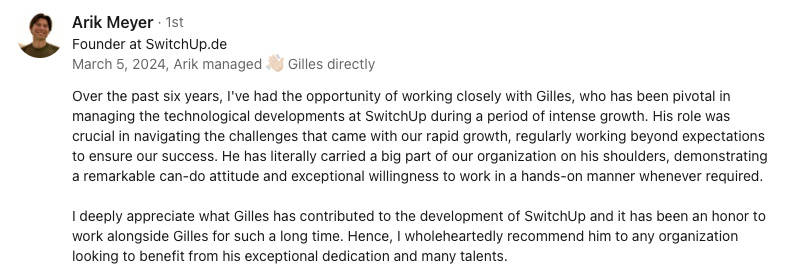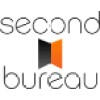Abstract:
The article discusses how co-working spaces are becoming essential for startups by providing a supportive environment that balances innovation with compliance, particularly with complex data laws such as GDPR. These spaces go beyond offering basic amenities like desks and Wi-Fi; they provide secure networks, access to legal advisors, and a compliance-driven community culture. Through strategic partnerships and regular workshops, startups can access necessary regulatory guidance and stay updated on compliance changes, easing the burden of legal adherence. This communal environment fosters a culture of accountability and shared learning, allowing startups to focus on growth while maintaining high compliance standards. Real-world examples, such as fintech companies like TransferWise and Revolut, illustrate how co-working spaces help streamline operations and manage security challenges effectively. Additionally, these spaces offer advanced security measures, including secure Wi-Fi and physical access controls, further safeguarding sensitive startup data. For startups, choosing the right co-working space involves evaluating factors like data security, compliance standards, and cost-efficiency, as centralized services often prove more economical than independent setups. Ultimately, co-working spaces enable startups to thrive by integrating robust compliance frameworks and fostering a supportive community.
Navigating the startup world can feel tricky, especially when balancing new ideas with following the rules. Entrepreneurs often get caught up in building something new while also dealing with complex data laws like GDPR. This is where co-working spaces come in handy. They're not just about having a desk and Wi-Fi; they offer built-in systems that help startups with legal requirements.
Imagine walking into a place where data protection is already set up, like finding a perfectly brewed coffee waiting for you. Co-working spaces provide secure networks and access to legal advisors, making them a great partner for startups. These spaces encourage compliance as a shared goal, supported by a community dedicated to high standards. After spending time in Europe's tech hubs, I've seen how these spaces allow startups to focus on innovation and growth without worrying too much about regulations.
Built-in Compliance Support in Co-Working Spaces
Infrastructure and Policy Alignment
In Europe's startup scene, co-working spaces are more than just workstations. They're built with compliance in mind, particularly for GDPR. These spaces protect data privacy and integrate security measures so startups can operate smoothly within legal guidelines. From my experience in tech hubs across Europe, co-working spaces give startups a valuable compliance framework. They form strategic partnerships with legal and tech advisors, allowing startups to access compliance consultations easily. For example, places like WeWork collaborate with legal providers to offer essential on-site expertise, easing the pressure of compliance for startups.
Workshops and seminars in these spaces are key to keeping startups updated on compliance changes. Regular educational events help new businesses stay informed about evolving regulations and best practices. These educational offerings include:
- Legal compliance workshops
- Data privacy seminars
- GDPR-focused discussions
These events empower startups to adapt quickly to regulatory shifts. The communal nature of co-working spaces supports continuous learning, helping businesses thrive in the regulatory landscape.
Peer Influence and Best Practices
The shared environment of co-working spaces plays a big role in promoting a compliance-driven culture among startups. In these spaces, startups aren't isolated; they're part of a lively ecosystem that encourages sharing knowledge and best practices. Observing peers maintain compliance encourages others to do the same. This culture of compliance is a collective effort, strengthened through mutual support.
In co-working communities, there's a shared sense of accountability, which naturally leads to regulation adherence. This environment encourages startups to keep high standards, not just to avoid legal trouble but to maintain their reputation within the community. The diversity of industries in these spaces enhances startups' ability to navigate compliance challenges effectively. Being surrounded by various sectors broadens the spectrum of compliance perspectives, challenging startups to adapt their strategies.
Enhanced Security Protocols in Co-Working Spaces
In today's connected world, protecting sensitive information is vital for startups. Premium co-working spaces recognize this need and have comprehensive security protocols. These measures provide a secure environment, reducing cybersecurity risks.
Network and Data Security
Protecting data starts with strong network security. Co-working spaces offer secure Wi-Fi networks, often with firewalls and data encryption. These defenses are the first line of protection, keeping sensitive startup data safe. During my time in Berlin, I saw how crucial secure connectivity is for maintaining client information integrity.
Comprehensive IT infrastructures include tools like intrusion detection systems and Virtual Private Networks (VPNs) for privacy. These advanced systems enhance security, letting startups focus on innovation without constant data breach worries.
Physical and Access Controls
Security in co-working spaces also includes physical protection. Personalized access systems, like key cards and biometric entries, ensure only authorized individuals can enter sensitive areas. This control reassures startups that their workspace is secure.
Surveillance systems and trained security personnel complement these access controls. Surveillance technologies provide constant oversight, while guards manage incidents effectively. This combination of technology and human oversight creates a safe atmosphere, allowing startups to thrive.
Collaborative Compliance Culture
Workshops and Training Sessions
Sharing resources through workshops on GDPR compliance and cybersecurity is another key aspect of co-working spaces. These sessions enhance startups' knowledge and readiness for compliance, providing tools to navigate complex regulations. Workshops often include practical activities that align with real-world scenarios, helping participants apply compliance concepts effectively.
Several co-working spaces offer specific training sessions tailored to industry needs. For instance, WeWork hosts cybersecurity and data privacy events, while Regus organizes workshops on IT security and GDPR compliance. These tailored sessions help startups address industry compliance issues, staying compliant and secure in their operations.
Shared Resources and Best Practices
Observing successful compliance strategies in co-working spaces benefits startups significantly. By accessing shared resources like legal advice and compliance tools, startups can ease the burden of maintaining regulatory standards. Spaces like Impact Hub offer in-house consultations, allowing startups access to expertise they might not afford independently.
Startups also benefit from observing and emulating successful compliance strategies among their peers. This communal learning atmosphere encourages businesses to adopt effective compliance measures. Sharing best practices ensures startups efficiently implement and adapt strategies to various contexts, leading to better compliance.
Compliance Support in European Co-Working Spaces
Infrastructure Designed for GDPR Compliance
In Europe's tech hubs, co-working spaces are committed to GDPR compliance. These are more than offices; they're ecosystems designed to integrate data privacy and security into startups' operations. From robust IT infrastructures to comprehensive data handling policies, these spaces offer a compliance framework startups can leverage. In Berlin's startup scene, I've seen how these spaces provide peace of mind, allowing startups to focus on innovation.
Strategic Partnerships for Expert Guidance
Co-working spaces often form strategic partnerships that enhance their compliance offerings. These involve collaborations with legal and tech advisors for on-site consultations. For instance, WeWork partners with firms like TriNet for HR and financial solutions, easing compliance tasks for startups. These resources are invaluable, especially for startups lacking internal capacity to handle regulations.
Continuous Learning Through Workshops
Keeping up with compliance is an ongoing challenge for startups. Co-working spaces help by hosting regular workshops and seminars with updates and practical guidance on regulations. For example, Regus and TechSpace host sessions on IT security and data protection, ensuring startups understand compliance and know how to implement it.
The Role of Community in Driving Compliance
Peer Influence in Compliance Culture
The shared nature of co-working spaces fosters a compliance culture driven by peer influence. Startups in these spaces often emulate neighbors maintaining high standards. This peer influence encourages best practices, including legal standards adherence.
Encouraging Accountability in Communities
A strong sense of accountability is fostered in co-working communities, reinforcing regulation adherence. This accountability comes from the transparency and mutual trust valued in these spaces. When compliance becomes a community norm, startups are motivated to follow, ensuring legal standing and community reputation.
Adapting Through Diverse Industry Exposure
Diverse communities in co-working spaces enhance startups' adaptability to compliance challenges. Exposure to various industries and regulatory frameworks broadens understanding and strengthens compliance strategies. Startups integrate varied compliance perspectives, preparing them for regulatory hurdles.
Enhanced Security Protocols in Co-Working Spaces
Network and Data Security
Data protection is essential for startups. Premium co-working spaces implement robust IT measures like secure Wi-Fi, firewalls, and data encryption, providing a reliable cybersecurity infrastructure. These measures safeguard sensitive information from threats, allowing businesses to focus on growth.
Advanced tools like intrusion detection systems and VPNs further secure networks. These technologies monitor network traffic for anomalies, preventing potential breaches. VPNs offer added privacy by securing data transit across public networks, ensuring startups can operate securely.
Physical and Access Controls
Co-working spaces also have sophisticated physical controls. Personalized access systems reassure startups that workspaces are secure. These systems deter unauthorized entry.
Surveillance systems and trained personnel maintain a safe environment. Constant surveillance keeps watch over spaces, while security personnel manage incidents effectively. This combination of technology and human oversight fosters a secure atmosphere for startups.
Collaborative Compliance Culture
Workshops and Training Sessions
Co-working spaces foster a compliance-savvy community through workshops and training sessions. These events help startups stay ahead of legal and regulatory demands. For instance, WeWork and Regus host workshops on GDPR compliance and cybersecurity, making complex topics accessible and equipping startups with necessary knowledge.
Many spaces offer specialized training for specific industries, creating an environment where startups thrive. Some examples include:
- WeWork: Cybersecurity and data privacy events
- Galvanize: Boot camps on compliance in cybersecurity, coding, and data science
- TechSpace and Regus: IT security and GDPR compliance sessions
These workshops provide practical strategies startups can implement immediately to meet compliance goals.
Shared Resources and Best Practices
Co-working spaces alleviate compliance burdens by offering shared resources like legal advice and compliance tools. Observing successful peers' approaches contributes significantly to a startup's strategy. Spaces like Impact Hub offer in-house consultations, allowing startups access to expertise they might not afford independently.
Peer influence is key in co-working environments. Startups benefit from observing and emulating successful compliance strategies among peers. This communal learning encourages effective compliance measures. Embracing proven practices leads to improved compliance outcomes, fostering a culture where adherence becomes second nature.
Real-World Success Stories: Compliance in Co-Working Spaces
Fintech Pioneers: TransferWise and Revolut
In fintech, startups like TransferWise use co-working spaces for compliance and security. These environments offer the infrastructure needed for GDPR compliance, streamlining operations. In Berlin, I saw how TransferWise used co-working spaces to build secure IT frameworks for data protection.
Revolut, another fintech leader, embraced co-working, utilizing available expertise to navigate regulations. Operating from Level39, a fintech-focused space, Revolut accessed specialized guidance for compliance standards. This reduced internal team burdens, allowing them to focus on scaling innovative solutions.
Strategic Learnings for Startups
From these examples, several successful compliance and security strategies emerge for startups in co-working spaces. Key factors include:
- Access to Secure Infrastructure: Startups benefit from integrated security systems and IT frameworks.
- On-Site Regulatory Expertise: Access to legal and compliance experts helps manage challenges effectively.
- Community Support and Networking: Engaging with innovators fosters learning and adherence to best practices.
Challenges remain, like keeping up with changing regulations and managing resources. However, using shared resources and community-driven initiatives makes these hurdles manageable. In Berlin, I learned that leveraging shared resources aids in overcoming challenges and sets the stage for innovation.
Actionable Strategies for Startups
Evaluating Co-Working Spaces
Choosing a co-working space that meets compliance and security needs can be tough. A structured evaluation approach is key. Focus on:
- Data Security Measures: Assess secure Wi-Fi, data encryption, and network security.
- Compliance Standards: Check for industry-specific regulation adherence and certifications.
- Physical Security: Investigate access controls and surveillance.
- Privacy Policies: Review data handling practices and confidentiality agreements.
- IT Infrastructure: Confirm technical support and data backup availability.
Cost is important, but security and compliance shouldn't be sacrificed for savings.
Incident response plans and legal considerations are also critical. Ensure the space has protocols for managing security breaches, and consider legal aspects like insurance for data breaches and legal consultation access.
Cost Comparison
Comparing the costs of co-working spaces versus independent security measures is crucial for startups. Centralized services often prove more cost-effective:
- Economies of Scale: Shared resources reduce costs due to bulk service provision.
- Centralized Services: Access to advanced security tools and compliance strategies is cheaper through centralized providers. According to McKinsey & Company, these services can cut costs by 20-30% per client.
Technological advantages should also be considered. Co-working spaces offer access to cutting-edge technologies and expertise without the high price of independent setups. This includes the latest IT security systems and compliance tools, which might be unaffordable for smaller startups. Leveraging these resources allows startups to focus on core activities while ensuring robust security and compliance.
Stepping into the startup world can be overwhelming, especially with the dual challenge of innovation and compliance. However, co-working spaces have made this journey easier and more efficient. They offer startups community support, cutting-edge security, and built-in compliance frameworks, enabling growth and creativity. By providing legal advisors and organizing regular workshops, co-working spaces foster continuous learning and shared responsibility. This helps startups meet regulatory demands confidently and enriches their strategies through diverse industry exposure. If you're part of a startup, explore how a co-working space could transform your journey. How has a shared workspace impacted your business? Share your thoughts!
You might be interested by these articles:
- Work Anywhere, Together
- Navigating the Surge of Co-Working & Nomadic Work
- Embracing Flexibility: The Future of Workspaces and Leadership





